- Home
- Pat Barker
Another World Page 12
Another World Read online
Page 12
But Geordie’s not having any of that. The question’s answered by silence.
GEORDIE: She got into spiritualism, me mam. Well a lot of the women did – and a few men. And there was this chap who used to take photos of people who’d lost somebody – a son or a husband or whatever – and lo and behold when the picture came out there was the person they’d lost in the photograph with them. So what could you do? Me mam was set on it and so Dad and me and our Mary all got our glad rags on, and off we went. The Great Family Portrait. I don’t know what I expected, I couldn’t see any fraud going on, but then it wouldn’t be done then, would it? Anyway, when we got them there was this, I don’t know, thing, in the background. You couldn’t make out the features, but you could just about see it was a face. And me mam says, ‘Oh, there’s our Harry,’ and she bust out crying and, I don’t know why, but it absolutely knocked my end in, did that. I was no good at all after.
HELEN: When was that?
GEORDIE: 1919. When the Armistice come on, you know, I didn’t want anything to do with that. I knew I couldn’t go through with it, the parades and all that, so I went to the coast instead. I walked miles and I didn’t have me watch on me so I didn’t know when it was eleven o’clock. But I was silent all day anyway, so it didn’t matter.
HELEN: Did you go to subsequent parades?
GEORDIE: Only once. I know a lot of men found it helped them, but I just, I just couldn’t, I just didn’t want to be reminded. The only time I did go was because little Geoffrey – our Harry’s lad – was going to be in it, and I felt I had to. But even then, I wished I hadn’t. There’s this little lad standing there with Harry’s medals on his chest and he didn’t know what the hell it was about. All he knew was he was going to get jelly and custard afterwards. They always gave the war orphans a slap-up tea in the Scout Hut. And afterwards I heard him boasting to his pal about it, and this other little lad turns round and he says, ‘I’d rather have me dad.’ Oh, and the look on Geoffrey’s face. Do you know, up to that time, I don’t think he’d made the connection between having no dad and stuffing his face on all this jelly and custard. You could see on his face, it was a real blow. I didn’t hold in with all that, anyway. Cubs and Boy Scouts wearing their dads’ medals and marching.
HELEN: Did you think there was an element of glorifying war in it?
GEORDIE: To an extent I did, yes. That and the hypocrisy. There was men fought in that war who were struggling to keep a roof over their family’s heads. If you must know, I used to think some people remembered the dead so they could forget the living with a clear conscience.
HELEN: You thought –
GEORDIE: I thought we’d been conned, love. (Laughs.) I knew we’d been conned.
HELEN: You didn’t find it easy to get work?
GEORDIE: Tramped round for two years before I got anything, and then it was in a scrapyard. I lived in a shed in the yard, and I had this little dog, a Jackie Russell it was, I loved that dog. Well, I was earning a living, but I was, I don’t know, on the fringes, I suppose. They were all saying in our street, Geordie’s a tinker. Me mam was mortified. Oh, it was a disgrace, that shed. She come up one afternoon with our Mary and of course the place was spotless. Didn’t matter, it was still a disgrace. And then about that time I palled up with these lads, and we used to go to the Palais, big bunch of us, and I’d have a dance with the lasses. You needed a lass to dance with in them days. These days they just stand up on their own and wriggle. But after the dance was over I never tried talking to the lass, I just used to take her straight back to her mates and more or less dump her.
HELEN: Why?
GEORDIE: Stammer. I didn’t tell you about the stutter did I? Paralytic, couldn’t get a word out.
HELEN: Doesn’t seem to bother you now.
GEORDIE: No, but it did then. You know I was a good dancer, I wasn’t bad-looking, no, no, I’m not being vain, I didn’t say I was good-looking, I says I wasn’t bad, but as soon as I opened my mouth that was it. You’d see the poor lass thinking, Oh, heck, what have we got here? But then I got on with our lass.
HELEN: And she was different?
GEORDIE: Oh yes, totally different. And it wasn’t easy for her, she had a helluva job with me when we were first married, because I was still having the nightmares and I used to wake up screaming, but it was worse than that. You know, I should be ashamed to say it, I suppose, but I used to wet meself. She’d wake up and there I’d be, screaming and clawing at the wall, and the bed’d be drenched and she’d be drenched. There’s many and many a woman wouldn’t’ve put up with what she did, and do you know she never once threw it up at me? She used to sit on the bed beside me and get hold of me hands and she used to sing:
Keep yor feet still, Geordie hinny,
Let’s be happy for the neet,
For we may not be sae happy thro’ the day,
So give us that bit comfort,
Keep yor feet still, Geordie lad!
And dinnet drive me bonny dreams away.
She was a good woman. She died forty-five years ago, and I can truthfully say there hasn’t been a day gone by that I haven’t missed her.
HELEN: And then you got a job?
GEORDIE: I got took on at a printer’s. I loved that job, all these b’s and c’s I couldn’t say, I’d just pick them up and slot them in. Click, click. Magic.
HELEN: You were happy?
GEORDIE: I was very happy. Still am. I’ve got nothing to complain about, I’ve had a good life.
HELEN: But you still didn’t go on the parades or anything like that?
GEORDIE: No, but I remembered in me own way. Every August 31st I’d say the lads’ names over to meself, and there were other dates as well. June 22nd.
HELEN: Harry?
GEORDIE: Yes. Harry.
A rare reference to Harry’s death, not pursued. All Geordie’s words, Nick realizes suddenly – and there are thousands of them in this interview alone – orbit round a central silence, a dark star. And yet his nightmares, now, are not about ‘the war’. They’re about Harry. It’s Harry’s name he shouts out in the night.
Before he gets into bed Nick winds up the clock Grandad keeps on the table in the hall, then takes it into the living room and closes the door on it. He’ll still hear the chimes, but as long as he doesn’t fall into the trap of listening for the next quarter it shouldn’t disturb him too much. We have heard the chimes at midnight, Master Shallow… Grandad certainly has, more often than most.
Nick stops to listen outside Geordie’s door. The mattress creaks, a few gabbled words, then silence. He goes into the spare room and opens the window. The moon’s just rising above the trees. Long shadows leap across the backyard wall and reach for the house. He gets between the sheets and turns off the light.
It’s the dead still of night when Nick wakes and lies, half dazed, awaiting the repetition of the sound that woke him. Silence. He’s settling himself to sleep again, thinking that after all it must have been the chimes of the clock that disturbed him, when he feels a current of cool air move across his face. A window’s open, or a door. He gets up and looks out, sees nothing, but then he hears the rattle of the latch on the back door. He races downstairs to the kitchen, but it’s empty. Light glares from the naked bulb; the room looks surprised and desolate. The back door’s wide open and Grandad’s standing at the bottom of the yard, arms clasping his skinny chest, staring at the sky. Wisps of cloud chase each other across the moon. Geordie’s a column of slippery light and shade; grey and silver shadows net his white hair. Nick calls his name, but he doesn’t turn round.
No time to find coat or shoes. A light rain’s been falling, the sloping, green-algae-coated surface of the yard feels greasy under his toes. Geordie sees him coming, his fingers find the latch, the door opens and he’s gone. Nick follows him out into the alley. The ground’s cobbled, the cobbles silver-edged and distinct in the moonlight, rounded as skulls. Geordie’s got halfway along the wall. He’s staggering, bent almost double, but then, as
Nick watches, he crouches, listens, moves on again. Nick wants to cry with the despair of it. Geordie’s reached a telegraph pole, and hides behind it. Nick begins to creep along the wall behind him, not wanting to shout his name and wake the street, still less to chase after him and add to the terror he must be feeling.
He’s got to within a few yards, dodging the piles of dog shit that litter the alley, when Geordie with the agility of a much younger man sinks to his knees and starts slithering across the cobbles on his elbows and knees, pausing, waiting, lowering his face to the ground, edging forward again. Nick edges closer. He hears Geordie muttering to himself, but then he moves on again, making for the wood. But which wood is it? Devil’s Wood, High Wood, Mametz, Thiepval? Geordie crawls faster, slithering away into the shadow of the trees.
Nick’s grasp on the situation starts to slip. His day-time self, the sane sensible middle-aged man coping as best he can with a confused elderly relative, vanishes. It’s too insubstantial an identity to survive in the dark wood at night. He forces himself to cough, a harsh sound that has Geordie spinning round. No trace of recognition. Nick goes up to him. He looks entirely mad, striking Nick flat-handed over his head and shoulders as Nick tries to get hold of him. Nick bats him off with blocking movements of his raised arms. Geordie’s blows are slow, exhausted and clumsy. He’s floundering like a man in mud or fire.
All this has been silent, but now Geordie starts to yell with rage. Lights go on all along the row of houses, so that their slow scufflings are illuminated in overlapping orange squares. Curtains are pulled aside, pale faces look down, realize it’s not a burglar, not a threat to them or their property, and half withdraw behind the shelter of closed curtains.
The lights and faces where no lights and faces should be reduce Geordie to a quivering abject terror, horrible to see. Nick can’t take any more. ‘Grandad,’ he says. ‘Come on now, come back to bed.’
Grandad. The preposterous word. Geordie peers at him, at the middle-aged, unknown face. He looks across the lane at the sharp angles of roofs, dark against a blanching sky; and not the horrors of the past, but the incomprehensibility of the present makes him afraid. He starts to shake, as on those night-time slithers through the wire he never shook, only trembled slightly, stomach muscles clenching, a sickness of anticipation rather than of fear.
‘Grandad,’ the stranger says again.
Geordie looks down at himself, at the pyjama jacket, the fuzz of white hair on his chest, and starts to cry. Nick puts his arm round him, cradling the whiskery cheek in the fingers of his other hand, and begins half pulling, half dragging him towards the house. Geordie struggles again as they reach the yard door.
‘Look,’ Nick says, groping for words that will make sense in both worlds. ‘We’ve got to get back, it’s nearly light;
Grandad scans the sky, sees dawn massing grey clouds edged with gold, and lets himself be helped back, limping barefoot over the cobbles.
In the kitchen Nick examines him. He stinks to high heaven and can’t be allowed to get back between the sheets like that. It’s not the dirt, it’s the dog shit. Nick takes off his pyjamas, and puts Grandad’s own mac round his shoulders. He sits on a high stool, while Nick lays a towel on the floor and gets to work washing his feet, his head nudging Geordie’s bony knees as he works. When the feet are clean, he dries them on the towel, and then scrapes the mess off his stomach, aware all the time that he’s doing this to a dying man, that Geordie’s life is ebbing away as he sits upright, God knows how, on the stool.
‘Do you want a fag?’
Geordie turns his head in the direction of the voice, and his lips move. Nick lights one for each of them, puts Geordie’s between his lips, and drags deeply on his own. Geordie’s concentrating on his first draw. He sits, silent, inhaling deeply, a blue mist between himself and the world. Are they in the trenches now, a dugout in the front line perhaps, or are they in the back kitchen of 22 North Road? Nick doesn’t know. Wherever Geordie is, he’s there too.
Nick leans against the wall, which sags alarmingly under his weight. None of the attempts to repair the plaster over the years has ever worked. This is it, he thinks, not confused, not even tired any more, just seeing clearly. He never talked. All through Nick’s childhood Grandad had said nothing. His body with its ancient wound, as hard to decipher as the carving on a rune stone, had been left to speak for him. Over the past twenty years, the time he should have been dead, he’s talked endlessly, delivering his stark and simple warning, but now they’ve come full circle. There he is again, silent, under the wreath of smoke.
‘Come on,’ Nick says, tossing his cigarette into the sink. ‘Let’s get you to bed.’
They go upstairs – a jostling of uncoordinated hips and shoulders in the too narrow space – and then on to the bed, where they collapse, panting like lovers.
‘Come on now,’ Nick says. He pulls the sheets further back, lifts Grandad’s scaly shins off the floor and into bed.
‘I can’t, I’ve got to –’
‘No, you haven’t,’ Nick said firmly. ‘There’s nothing you’ve got to do.’
He switches on the lamp beside the bed, thinking it might be reassuring for Geordie to see the familiar room, but he looks round at the furniture in bewilderment and then, in real terror, at Nick’s face.
He doesn’t know who I am, Nick thinks. There’s a moment of narcissistic pain, of real diminishment. For the first time in his life he looks into the steel mirror and it doesn’t reflect his face. More important things than that to think about. Geordie’s cold. ‘Do you want a bottle?’
No answer. Nick changes out of his filthy pyjamas, fetches a clean T-shirt and pants, puts them on and gets in beside him. They’ll get warm, probably, sooner or later, though he doubts if he’ll be able to sleep. The window’s a square of definite light. He lies, tensely, aware of the other body, reluctant to turn and look at him. He wonders whether Grandad’s remembered who he is.
Time passes, he doesn’t know how long, or whether he’s been to sleep after all.
Geordie’s eyes are wide open. He mutters something and Nick bends closer to listen. He can’t make head nor tail of it, except that it’s about Harry.
‘What about him?’
No reply. After a few minutes Geordie’s breathing slows and Nick risks a sideways glance. At first he thinks he’s asleep, the eyes are white slits in his grey face and his mouth’s fallen open. But then the tip of a purple tongue appears and runs round the pale lips. He says, and the words cling to his dry mouth, ‘I killed Harry.’
Nick turns towards him. It’s not true of course, it’s obviously a delusion, but there’s no denying the reality of his despair. He grasps his cold hand, but, after a few moments, Geordie wriggles his fingers and gently, almost apologetically, takes the hand away.
TWELVE
Next morning, standing in the kitchen with his hands clasped round a cup of coffee while Frieda unpacks her shopping bag, Nick’s able to imagine he’s back in childhood. The events of last night are blurred with sleep. Geordie’s in the living room, talking about what he wants for his breakfast. He looks forward to meals eagerly, though he never eats much. He can’t be bothered to go all the way upstairs again, he says, so he gets washed stripped off at the kitchen sink, and this too produces a flood of memories, for Geordie always washed like that at the kitchen sink, bluthering and spluthering the soap around his face, digging powerfully into his ears with his fingertips, his face emerging blind and pink from behind the towel. Off to the working men’s club, usually. Not to the British Legion – when Nick was growing up he’d still been avoiding that. Always wore a buttonhole when he was going out, a yellow rose or a carnation. Replaced once a year, without comment, by a poppy that appeared and disappeared.
Nick goes into the living room and sits on the arm of the sofa, while Grandad chases his food around the plate, saying, ‘Nice bit of bacon, this,’ though most of the nice bit of bacon’s still on the plate when eventually he stops pretend
ing and pushes the tray away. He lies with his hands pressed against the swell of his stomach, clasping the bulge from the sides. Many of his gestures echo Fran’s. Life growing inside one belly; death in the other. A banal reflection, Nick thinks, ashamed he can’t push his thoughts beyond the banal. The truth is he’s just too bloody tired. The supply of emotion’s run out.
Before he leaves he rings Helen and arranges to meet her outside the University library at ten o’clock. She’s waiting for him under the sin tree, where student smokers go to smoke, sitting quietly on the low stone wall. He bends down and kisses her.
‘How is he?’
‘Pretty bad.’ Now that he’s away from the house, Nick’s more aware of how deeply last night had shaken him. He sits beside her on the wall, hands dangling between his knees. ‘He said he killed Harry.’
Her expression doesn’t change.
‘I wondered if he’d said anything to you?’
‘Harry wasn’t his favourite topic’
‘No, I noticed that. Couldn’t change the subject fast enough, could he?’
‘What exactly did he say?’
‘Just that. “I killed Harry.”’
‘What sort of state was he in?’
‘When he said it? Confused, frightened. He’d been wandering about half the night, on patrol. I got him back to bed – he obviously didn’t know who the hell I was – switched the light out. I thought he’d gone to sleep, and then – no warning – out of the blue – “I killed Harry.”’ Nick can’t stop himself sounding aggressive, as if this is her fault. ‘I’m sorry, it’s –’
‘What do you want me to say, Nick?’
‘O-oh, that he’s reshaping his memories to fit in with current myths and assumptions about the war?’ His smile fades. ‘I want you to tell me it didn’t happen.’
‘I can’t tell you that.’
‘Or anything else either?’

 Border Crossing
Border Crossing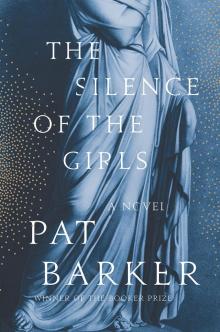 The Silence of the Girls
The Silence of the Girls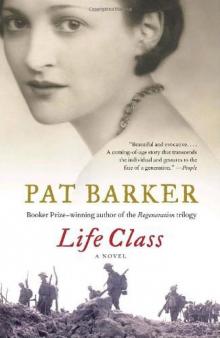 Life Class
Life Class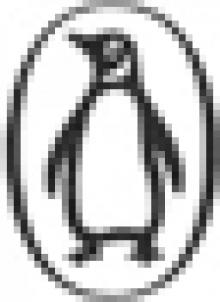 Regeneration
Regeneration Another World
Another World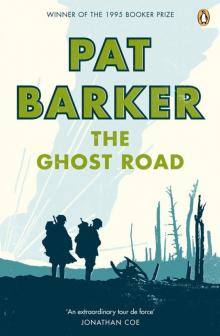 The Ghost Road
The Ghost Road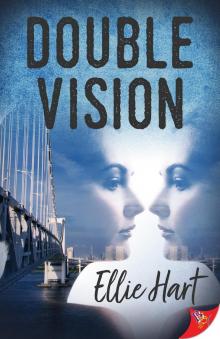 Double Vision
Double Vision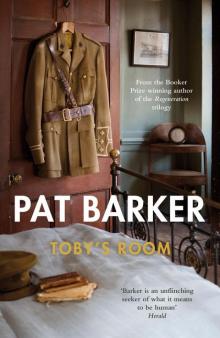 Toby's Room
Toby's Room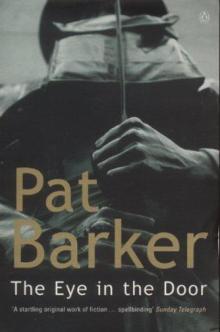 Regeneration Trilogy 02 - The Eye in the Door
Regeneration Trilogy 02 - The Eye in the Door The Eye in the Door
The Eye in the Door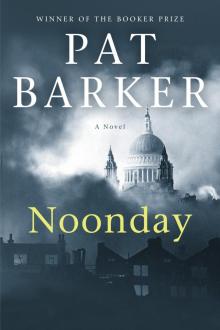 Noonday
Noonday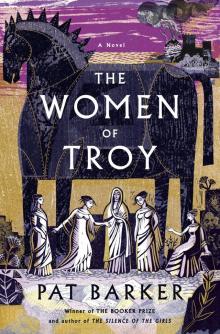 The Women of Troy: A Novel
The Women of Troy: A Novel